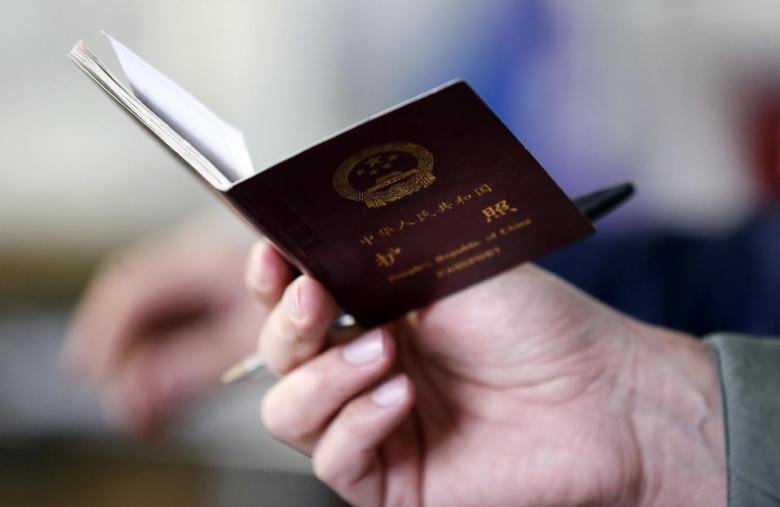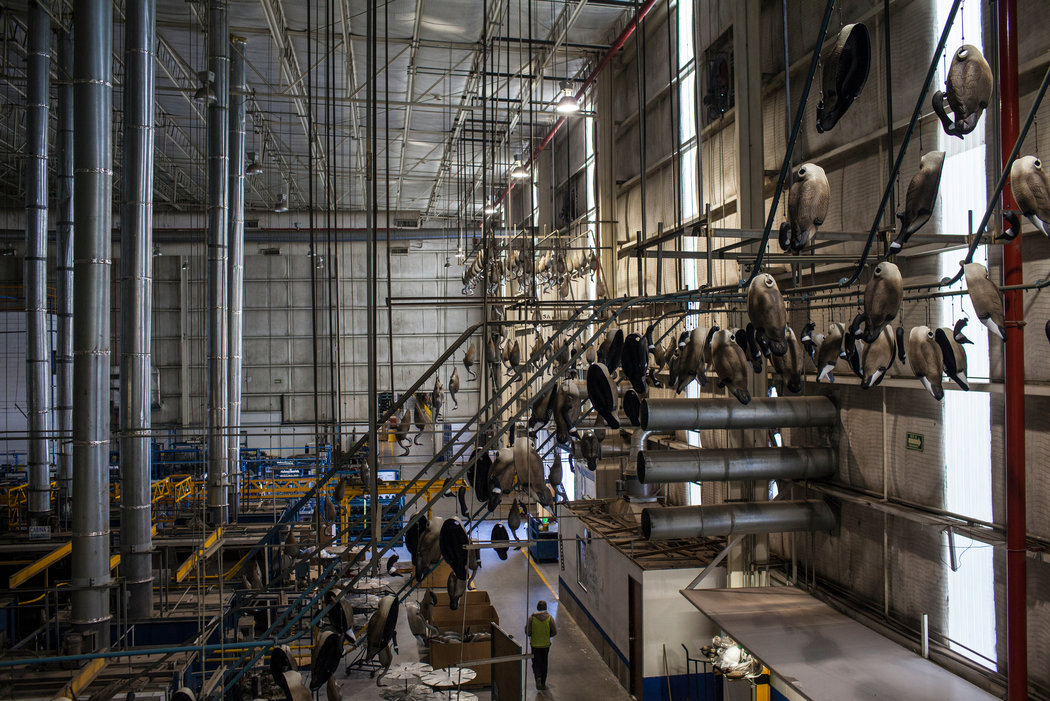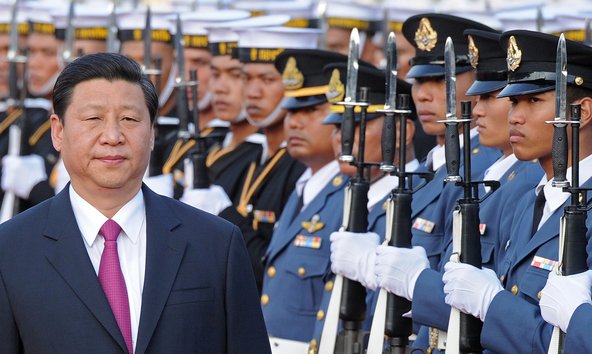
 Green Cards & Red Lines
Green Cards & Red LinesChinese "green cards" are morphing into "smart cards" to be used when buying train tickets, opening a Chinese bank account, or clearing airport security in an effort to improve the experiences and benefits for foreigners living in China, SCMP has reported. A related Xinhua story notes that it's a lot harder to obtain a Chinese "green card" than the U.S. Even though the green card scheme was introduced in 2004, only 7,356 foreigners have been granted permanent residency. In contrast, nearly 1 million individuals are granted permanent residence in the U.S. every year. The name of residence cards even gets a revamp, now dubbed "Permanent Residence ID Card" replacing the old name of "Permanent Residence Permit," highlighting its practical use as an ID card. Making the "green cards" more useful is also a sign of the government's hope to attract more foreign talent, Xinhua observes.
SCMP also reports that the Party's top corruption watch dog – the Central Commission for Discipline Inspection- has recently laid out "red lines" for party official using WeChat and other social media accounts, banning behaviors such as vote rigging, accepting "red envelopes," and publishing comments that "ridicule" the party policy platforms. Some of the forbidden activities (link in Chinese) are more predictable – sharing confidential information or pornography -- while others are harder to enforce, such as operating online stores, or vague, such as posting "inappropriate content."
 AmCham China Cites Barriers, Creative Artists Agency Seeks More Action in China
AmCham China Cites Barriers, Creative Artists Agency Seeks More Action in ChinaThe annual report from the American Chamber of Commerce in China said that U.S. companies operating in China were to face one of the most challenging business environments in decades this year. Bloomberg News highlighted two challenges that the U.S. business lobby in Beijing sees (barriers for U.S. investment and faltering economic reform which decreases the competition from foreign entities). The Financial Times identified the trend that American companies in Beijing are shifting focus to market access as concerns of trade war recede. The Global Times notes that an equal level of opening up between China and the U.S. would be really difficult, citing Chinese experts. China Daily meanwhile, wrote a more positive take on the report, quoting AmCham in China Chair, William Zarit as saying the members of his organization are upbeat about the prospects for the Chinese economy, and hope that "Donald Trump 'will mark the start of tangible progress toward a healthier and more balanced relationship.'"
The film industry is a prime example where both the United States and China are seeking more access to each other's markets. Just this past week, CMC Capital Partners of China partnered with top Hollywood talent management firm, Creative Artists Agency (CAA). Deadline reported that the new business opportunities would include "everything from endorsements and sports to digital media, music, and original content production."
 Xi Announces Major Military Restructuring, Stresses Loyalty
Xi Announces Major Military Restructuring, Stresses LoyaltyThere is a lot of reporting in China about the restructuring plans for the military, announced this week by President Xi Jinping, who is also general secretary of the Communist Party of China Central Committee and chairman of the Central Military Commission. The official Chinese military website 中国军网, has listed six major milestones (link in Chinese) on Xi's efforts since November 2015 to restructure the country's armed forces to make it leaner and combat-ready. The South China Morning Post reported that Xi has launched sweeping reforms of the military "including an unprecedented anti-corruption drive that led to the downfall of many high-ranking officers, including former CMC vice-chairman Xu Caihou and Guo Boxiong," and also that Xi "made similar calls for the military to serve the party in the past, but this was the first one directed at the new units."Reuters reported that there would be an increased emphasis on the leaner military to focus on new capabilities including "cyberspace, electronic and information warfare."
 China Social Media Watch
China Social Media Watch"President Obama would refuse to leave the White House if Donald Trump won the election!" "WikiLeaks documents showed Clinton was selling weaponry to the Islamic State." These articles, or rather, "fake news" clickbait titles were read by millions of Chinese Internet users. In an interesting report, Sixth Tone looks into how the social media feeds of millions of Chinese netizens are filled with a torrent of misinformation from the West's now-ubiquitous fake news and conspiracy theory websites. Some of the blame falls squarely on a group of social media accounts known as Ying Xiao Hao, or "marketing accounts," run by Chinese startups with limited funds and staff support that seek to push out sensational content to accumulate clicks. The Sixth Tone report doesn't touch the issue of fake news and misinformation originating from within China, however. Another common phenomenon is the mistaking of U.S. satire as real news. In 2012, People's Daily, reported that Kim Jong-un, the North Korean leader, had been named "Sexiest Man Alive for 2012," based on a satirical article in The Onion. More recently, The New Yorker's satire writer, Andy Borowitz, wrote a fantastical piece where a frantic President Trump ordered his aides to wrap the White House telephones in tinfoil, which was reported as real news in respected publications like Caijing (link in Chinese has since been removed) and Sina (link in Chinese).
Another popular series of news on social media this week were a series of commentaries and interviews with scholars and researchers on President Xi's policy speech on cyber security and internet governance delivered a year ago. China Daily focuses on Xi's call for internet technological breakthroughs, while a Fudan University researcher claims on China.gov.cn that cyberspace governance leads to more freedom. China-US Focus contributor Rogier Creemers has published a number of op-eds on cyber governance, including the most recent one titled Time to Play Ball in Cyberspace?
 China This Week...in 1948On April 20, 1948 the Republic of China held an indirect election in which Chiang Kai-shek one a landslide victory with 90% of the vote. The election took place in Nanjing at a time when the Kuomingtang government was loosing influence to the People's Republic of China during the civil war. By May of the following year, Chiang Kai-shek declared martial law and had fled to Taiwan with a few hundred thousand Nationalist troops and two million refugees, predominantly from the government and business community.
China This Week...in 1948On April 20, 1948 the Republic of China held an indirect election in which Chiang Kai-shek one a landslide victory with 90% of the vote. The election took place in Nanjing at a time when the Kuomingtang government was loosing influence to the People's Republic of China during the civil war. By May of the following year, Chiang Kai-shek declared martial law and had fled to Taiwan with a few hundred thousand Nationalist troops and two million refugees, predominantly from the government and business community.
Prepared by China-US Focus editorial teams in Hong Kong and New York, this weekly newsletter offers you snap shots of latest trends and developments emerging from China every week, while adding a dose of historical perspective.
- 2017-04-14 U.S Beef for Chinese Chicken? More Hollywood Films in China?
- 2017-04-07 The Xi-Trump Summit in Florida
- 2017-03-31 Google Makes a Comeback to China?
- 2017-03-24 Xi and Tillerson Trade Phrases
- 2017-03-17 Sec. Tillerson Visits Asia ahead of Xi-Trump Summit
- 2017-03-10 Defending China's Defense Budget
- 2017-03-03 The Korean Peninsula Draws Headlines
- 2017-02-22 CPC Meets to Reaffirm Commitments in Anticipation of "Two Sessions"